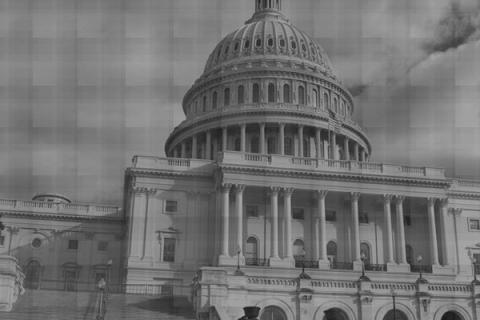Why do official estimates for California's budget deficit consistently overestimate revenue and underestimate expenses? This has been happening so steadily for years that it seems a deliberate attempt to erect a Potemkin Village (a shiny and phony facade covering up the true and bedraggled reality.) Because, oops they did it again, just last week too. Somehow that sneaky old budget deficit for 2011 just exploded higher by several billion, and apparently everyone in Sacramento was just gobsmacked by this rude intrusion of facts into their fantasyland deficit projection, which is now twice as large as predicted.
Apparently - now hold on for this shocker - Sacramento failed to realize that the economic recovery would be slow and thus would impact the budget. I mean really, how could anyone have predicted something as crazy as that? Plus, they apparently forgot that $8 billion in temporary taxes expires this year, and wildly over-estimated the amount that the feds would give them. What's more, the current estimates do not even factor in cost-of-living increases.
If you were the head budget analyst for a large corporation and concocted fictional budgets which have been proven to be extraordinarily and consistently wrong, you'd be fired, and deservedly so. So why are such GIGO (Garbage In, Garbage Out) budget estimations constantly accepted by Sacramento? (Well, they are accepted until inevitably proven wrong, then a new one takes its place, with similar Pollyanna predictions.)
The budget projections, I'm willing to bet, still contain gaping holes and expenses that aren't being accounted for. For example, the state unemployment fund is projecting a $20 billion deficit by the end of 2011. Is that accounted for in the current budget? I doubt it. Public pension funds like CalPERS have huge deficits and can legally force the state to make up the difference, as they did this year. Are those pension deficits part of the California budget estimate? I'm willing to bet the answer is No, because if you add the pension and unemployment fund shortfalls, then you are already at more than the $24.6 billion projected as the deficit.
Some of the proposals to close the budget gap could be described as comically inept if the consequences weren't so severe. Consider the plan to sell state buildings, pocket the money, then lease them back. As it turns out, it will cost hundreds of millions more than expected and is the equivalent to borrowing at 10%. The only ones who will profit from this are the real estate developers who buy the properties. I'm sure that's just a coincidence.
I suggest that the budget estimation process in Sacramento is broken, and deliberately so. They apparently don't want us to know how bad things really are. My guess is that the ground-level assumptions fed into the estimation process are deliberately skewed so as to give a preordained result. Spreadsheet results are based on other spreadsheets, but the original input is faulty. We need to give independent CPAs and CFEs (Certified Fraud Examiners) full access to the data so realistic budget projections can be made. Further, we need a range of projections, from most gloomy to most optimistic based on real data, not perky assumptions that everything will be fine, just fine. What we have now is worse than useless. California deserves and needs better than this.

